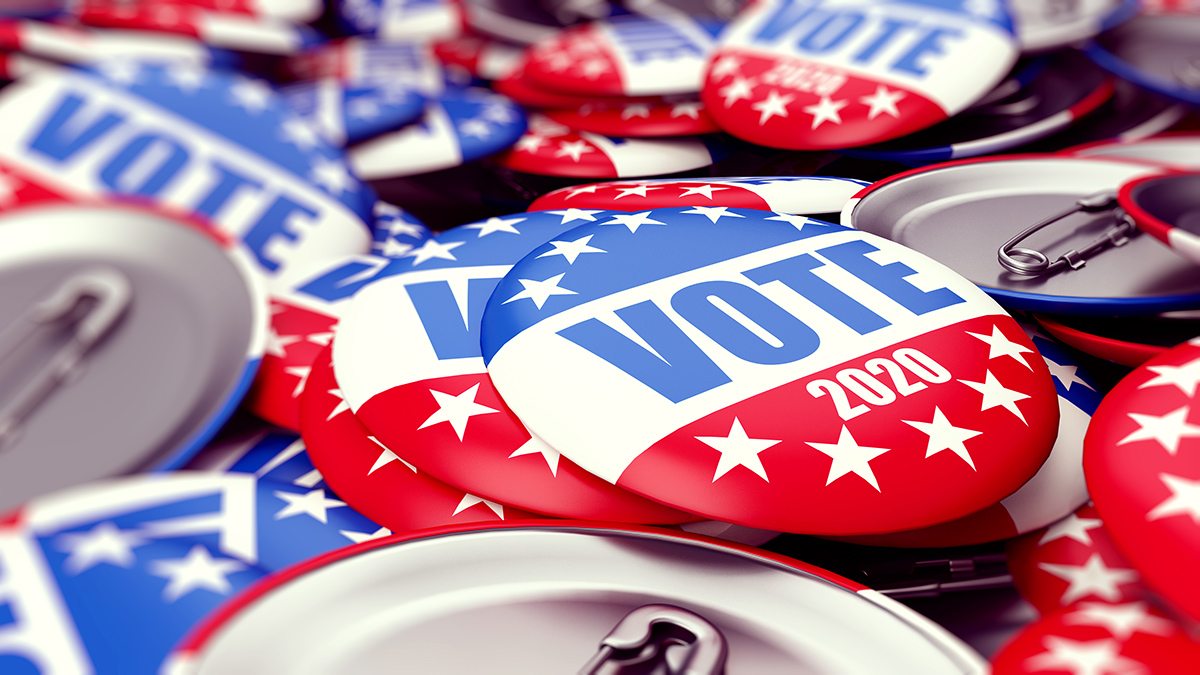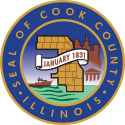Cook County Clerk Karen Yarbrough along with her team has worked hard to make many precautions to each polling place in the City of Chicago to guard against COVID-19. Clerk Yarbrough sits down with CEO Lee Neubecker of Enigma Forensics to discuss the COVID-19 precautionary measures that will be put in place to keep the voters safe on election day.
COVID-19 Precautions by Cook County Clerk Karen Yarbrough
Lee Neubecker(LN): So I’m here today again with Karen Yarbrough Clerk of Cook County. Karen, thanks for being on the show.
Clerk Karen Yarbrough(CY):My pleasure Lee.
LN: And today, we’re going to be talking about election day voting, what you should know what steps the clerk’s taken to help ensure that you’re safe and protected from COVID-19. So Karen, tell us some of the steps you’ve taken to help protect the poll workers and voters for the upcoming election day.
CY: Well Lee, the primary election really gave us a really good bird’s eye view of what we needed to do. What we were unable to do. We had ordered over $30,000 worth of equipment for our poll Watchers and our judges and the public. And it didn’t show up and we get it. They had diverted it to the first responders. So using that as a guidepost, we are prepared for November election. In our warehouse currently, we have gloves we have masks, we have shields, we have the bacterial wipes. We have everything that we need for this election. Additionally, we plan to mark off in the polling places. There’s the six foot we’re going to social distance and the same thing with the machines. We’re going to social distance those. People can feel safe and secure and their vote is going to be the same way.
LN: So what if it rains on election day?
CY: Well, what if it rains? We’re going to do what we always do. We’re going to take an umbrella We’re going to go to the polling place and we’re going to put our umbrella up and we’re going to go and vote.
LN: Well, hopefully enough people early voted, and voted by mails.
CY: We’re hopeful. We’re encouraging people to early vote but what we’re seeing that there’s still some people who want to show up on election day and that’s their right. and we’re going to honor that.
LN: So should people bring their own Sharpie or pen when they come to the polling place?
CY: If they feel more comfortable bringing their own pen by all means, bring it. But I can tell you that we will have a sufficient number of pens. We plan to clean them between each use so that everybody can be safe. I want my workers to be safe as well as the voters.
LN: So what are you doing to help protect people against COVID 19 transmission that comes from being bunched in lines while waiting?
CY: Well, there won’t be any bunching in lines, okay? First of all, they’re going to be socially distance at least six feet apart. So there won’t be any of that bunching that’s…
LN: So you have lines on the floor?
CY: No we’re going to have, we’re going to have yes, absolutely lines on a floor inside the polling place and even outside the polling place even if it rains.
LN: Are they doing temperature checks?
CY: We are not.
LN: So do you think, should we be concerned about a potential spike in cases in Cook County, following election day?
CY: You know we were during the primary, we were concerned about that, but not one person, not one judge and that one person that we know of were affected. And we certainly didn’t have what we’re going to have in November. So I really don’t think so. We’re going to take every precaution to make sure that people are safe. I will be out there all day, election day as I usually am. I go to the polling places, I talk to the judges to see if there are any problems. We have a team of people who will be out there that day to problem solve and troubleshoot. So I fully expect things to go well on election day.
LN: So if people aren’t sure where they vote, how can they find out?
CY: They can go to the best website in the world. And that is cookcountyclerk.com all things election your trusted source.
LN: Great, well thanks so much. This is great, you’ve reassured me, however, I’ll be voting by mail this year, but I’m certainly hopeful that many other people did as well. So that the lines are short and fast for everyone.
CY: We’re suggesting that people come up with their own plan of what you’re going to do. If you’re going to vote early and drop it in the mailbox if you’re going to get your ballot and drop it in one of our safe drop boxes or if you’re going to vote on election day find a plan, make a plan and then exercise your right to vote.
LN: And what should people do before they come in to the election poll?
CY: What should they do? Well, they should wash their hands. They’re going to have to do that. We’re going to have that bacterial stuff that you use on your hands, but we’re going to have gloves too. People are going to be safe. They’re going to feel very very comfortable when they come to the polling place.
LN: And they should wear a mask when they come.
CY: They should absolutely.
LN: And if they forgot their mask?
CY: And if we’re going to give them another one.
LN: Great.
CY: Yes.
LN: So most importantly vote. Thanks for helping keep us safe Karen.
CY: Thank you.



